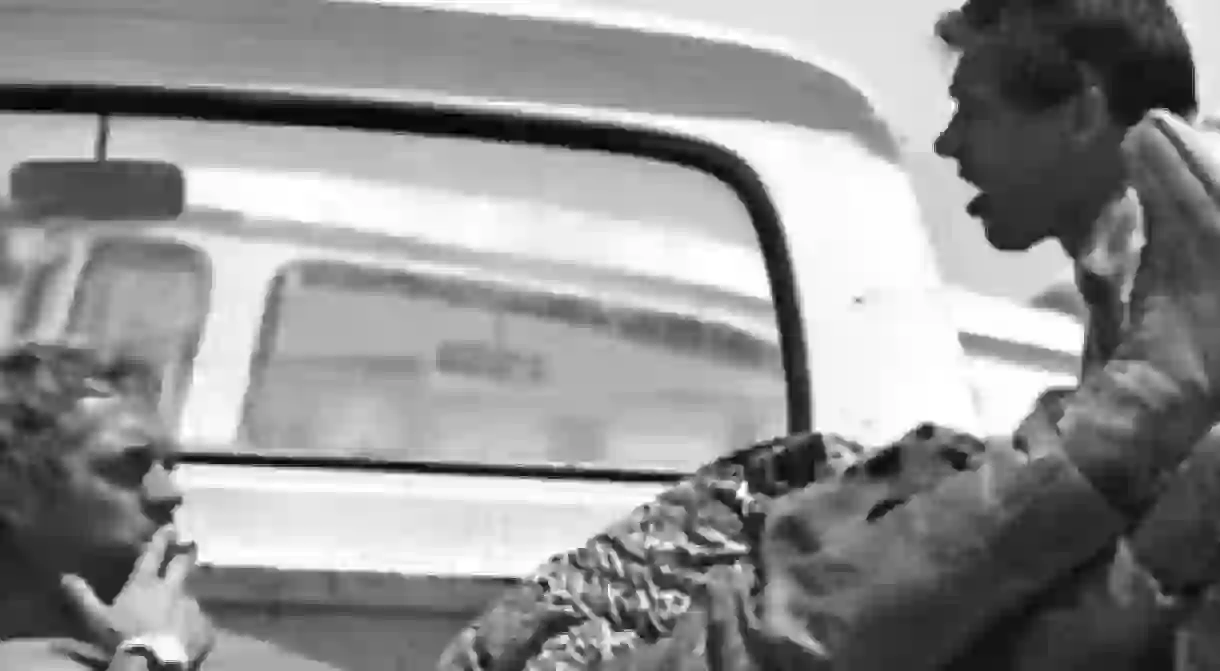They Don't Make Men Like Steve McQueen Anymore

A strong, silent type and Hollywood anti-hero, actor Steve McQueen will forever be remembered as a man who lived by his own rules and principles.
The myriad of iconic roles that McQueen played is nigh on endless: Thomas Crown in The Thomas Crown Affair (1968), Hilts in The Great Escape (1963), Vin Tanner in The Magnificent Seven (1960) as well as Josh Randall in all 94 episodes of Wanted: Dead or Alive (1958-61). His performances defined the anti-hero par excellence to an entire generation.
The vagabond style that infuses so many of his characters makes him captivating to watch on screen. It is the grit in his performances that comes both from his skills as an actor and from his turbulent past that imbues his characters with a delicious unpredictability. His mere presence in a scene gives it a chaotic sense of endless possibility. When McQueen is on screen he will seduce you into forgetting the story is scripted, for behind those ice-cool eyes and seductive smirk prowls a restless man with a ferocious inner drive.
Born in Beech Grove, Indiana, on March 24th, 1930, to a single mother, McQueen spent his early years bouncing back and forth between her and his maternal grandparents, Victor and Lillian, who lived in Missouri. Much of his youth was defined by petty crime and poverty line subsistence. While living with his mother in and her third husband in Los Angeles, McQueen got into a row with his stepfather and was ultimately sent to the California Junior Boys Republic, a school for troubled adolescents in Chino.
Though his integration into the community was hard, McQueen ultimately became a star member of the institution and remained in close contact with it throughout his life. After he became a star, he visited it numerous times to speak to the boys there, answered every letter sent to him by a student, and is even rumoured to have made outrageous demands on his movie sets for new jeans, t-shirts, and razors that he would donate to the school.
After he left Chino at 16, McQueen worked numerous jobs, ranging from lumberjack to a Private First Class in the United States Marine Corps. He began acting on stage and in practically no time was co-starring alongside famous actors.
Though his performances were always well-received, McQueen only ever earned one Oscar nomination — for his performance as Jake Holman in The Sand Pebbles (1966). He was one of the highest paid actors in Hollywood, however, even though he was notoriously hard to work with. The list of films that he turned down is nearly as impressive as those he starred in. Steven Spielberg wanted McQueen for Close Encounters of the 3rd Kind (1977), but he reportedly turned it down as he was unable to cry on command.
He also declined Butch Cassidy and the Sundance Kid (1969) because his agents could not decide who got top billing — McQueen or rival star Paul Newman.
McQueen never had the chance to write and direct his own work, something he had looked forward to. “I’ve got a feeling I’m leaving stardom behind, you know. I’m gradually becoming more of a filmmaker, acquiring a different kind of dignity from that which you achieve in acting,” he said. “After all, I’m no matinee idol, and I’m getting older. I want to be on more of the creative side of business.”
McQueen was larger than any of the roles he played. Like an American James Bond, he was idolised by the masses. A cultural icon whose myth is greater than his legacy, he may always be the undisputed “King of Cool”.













